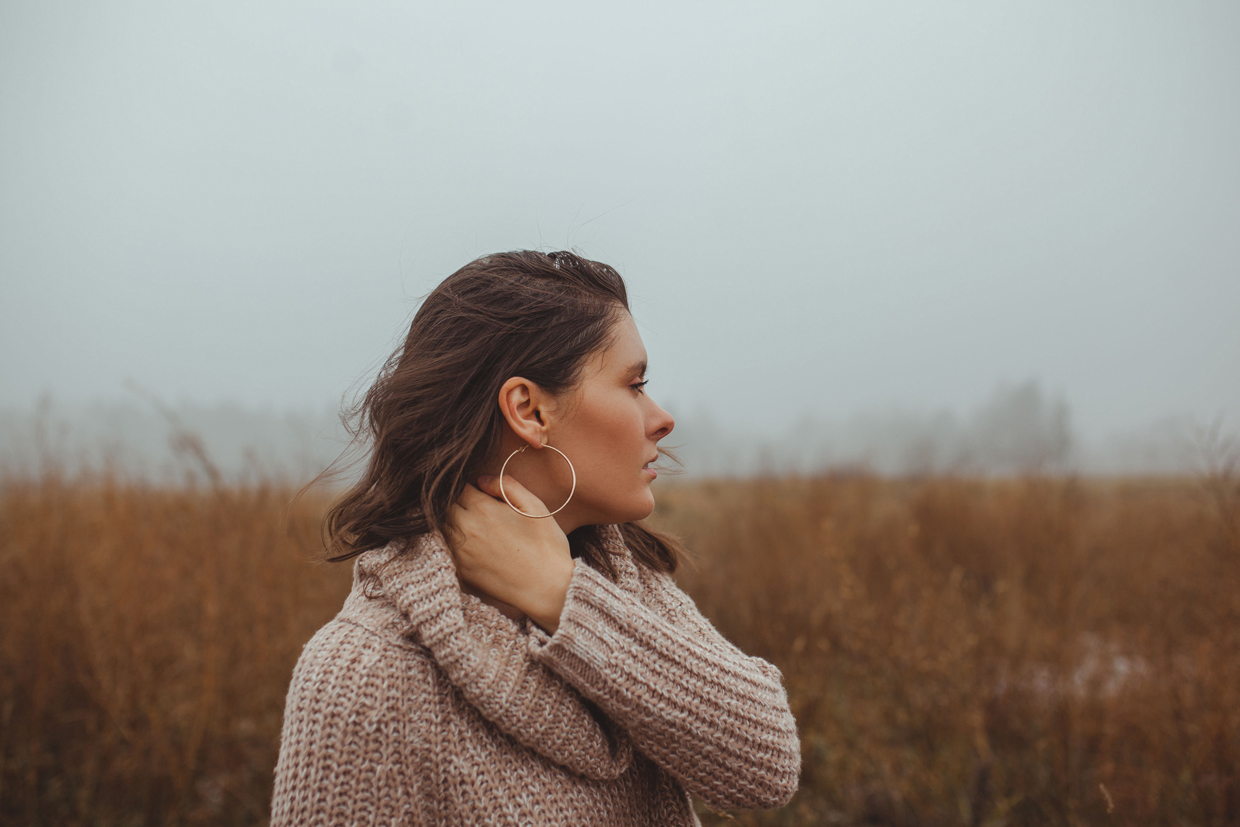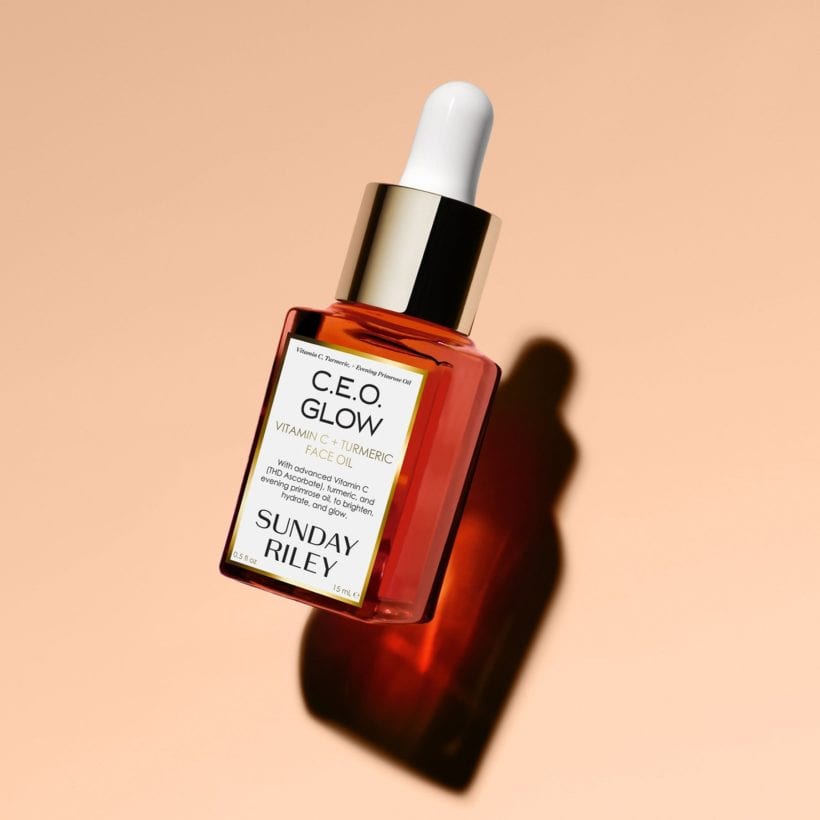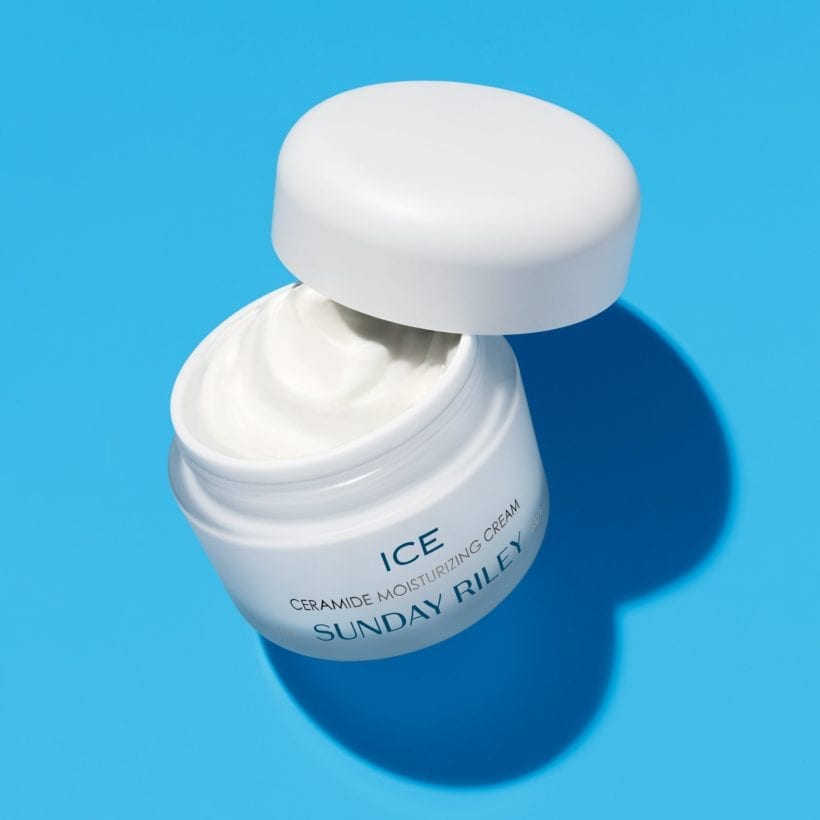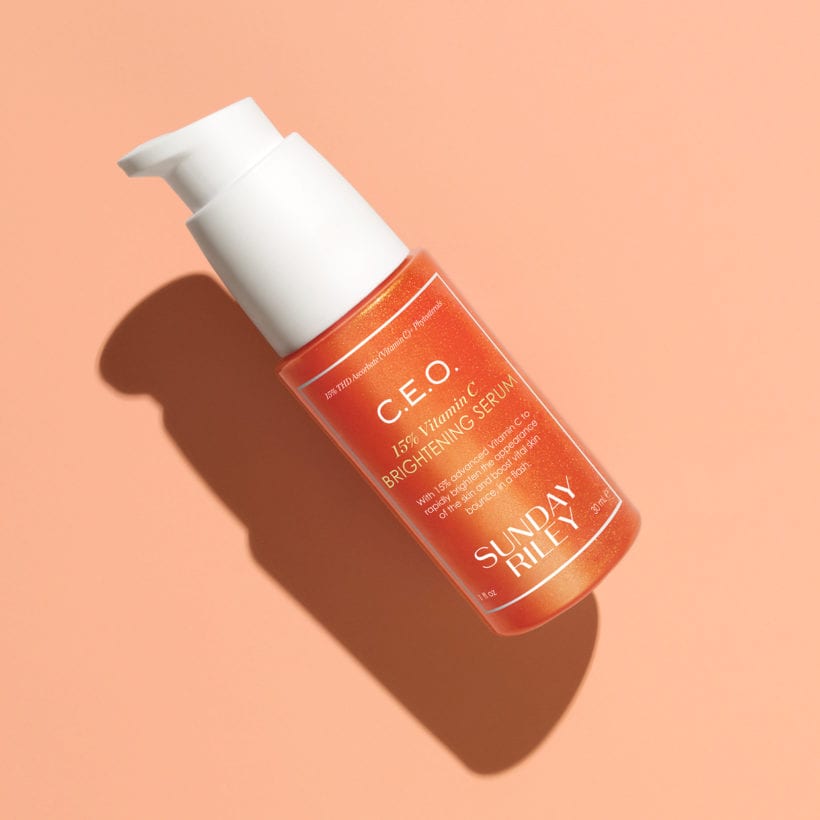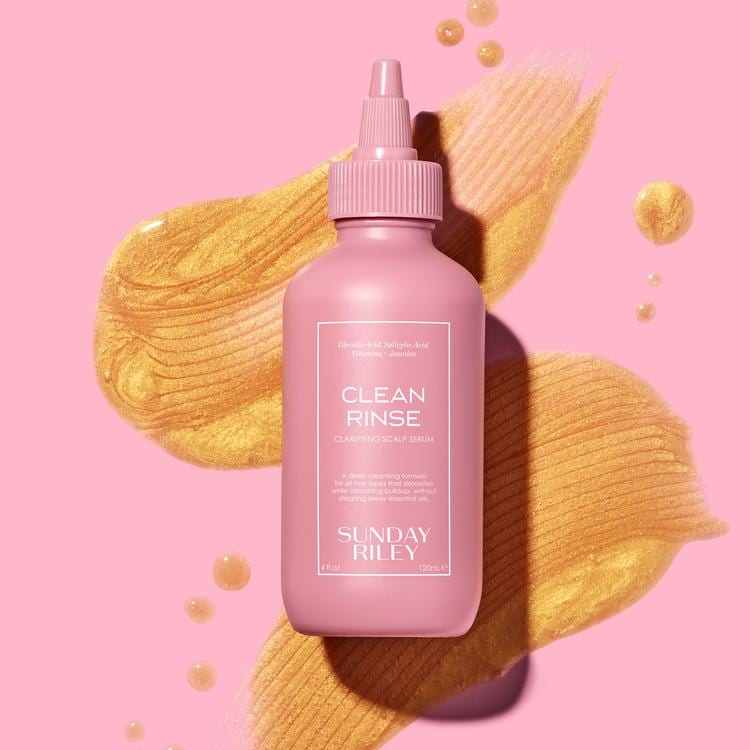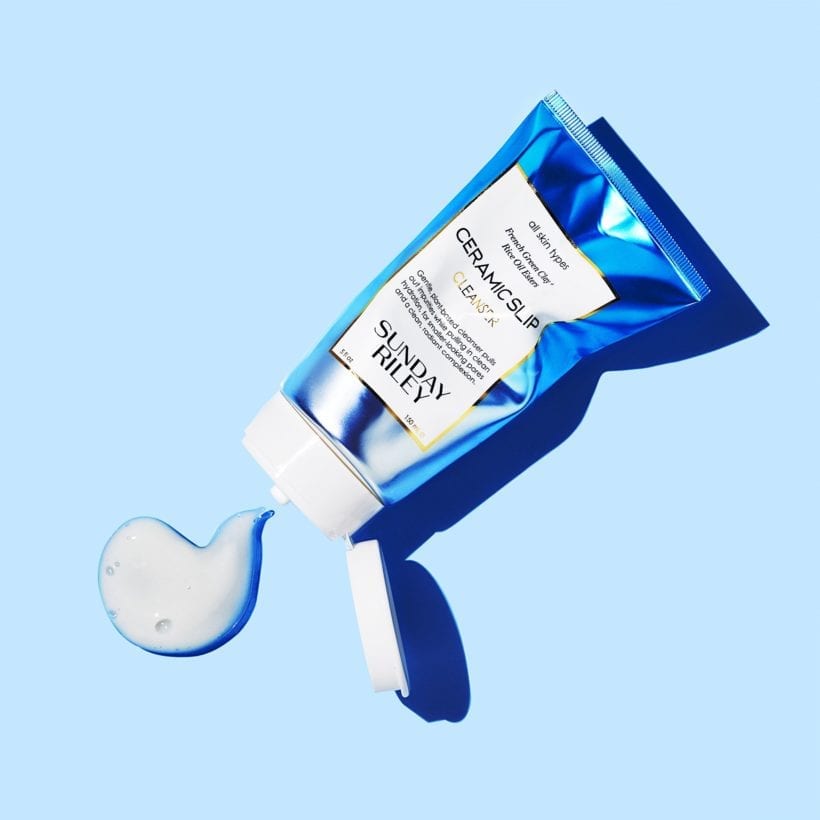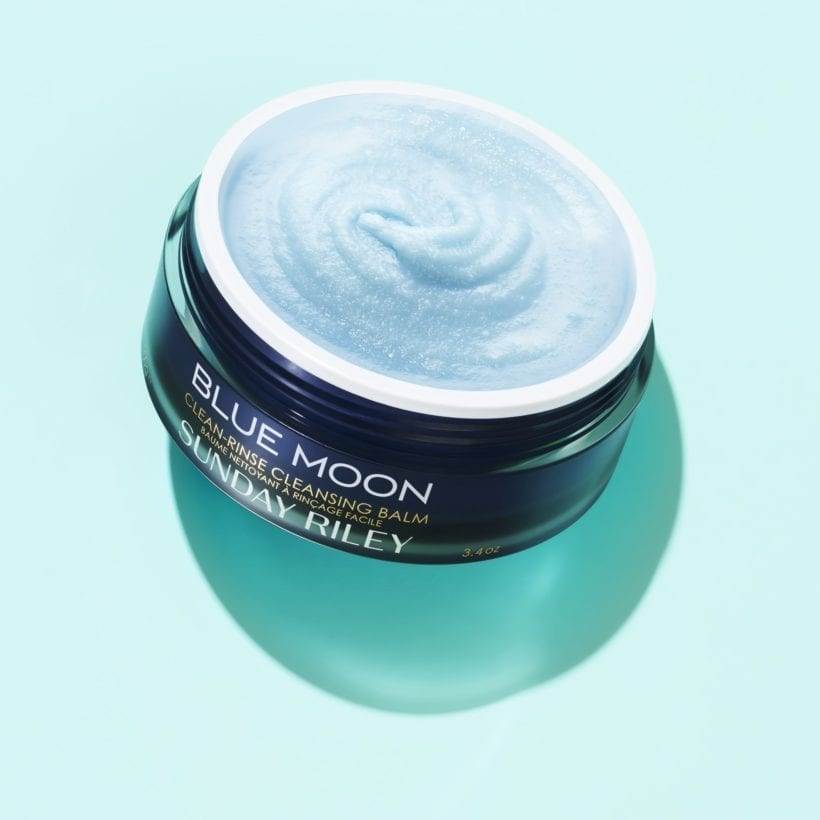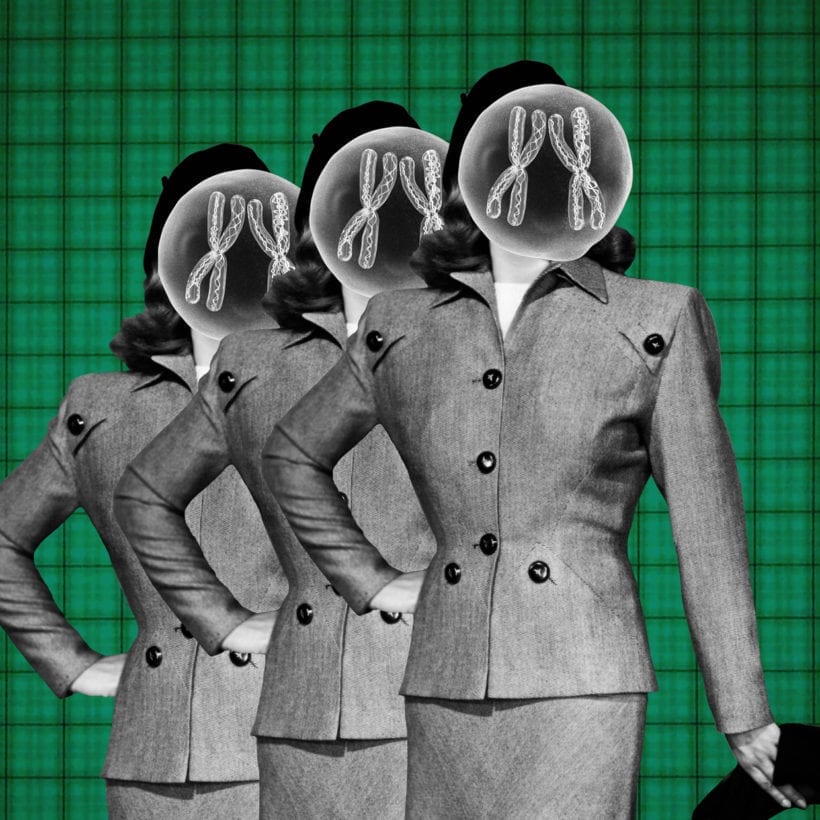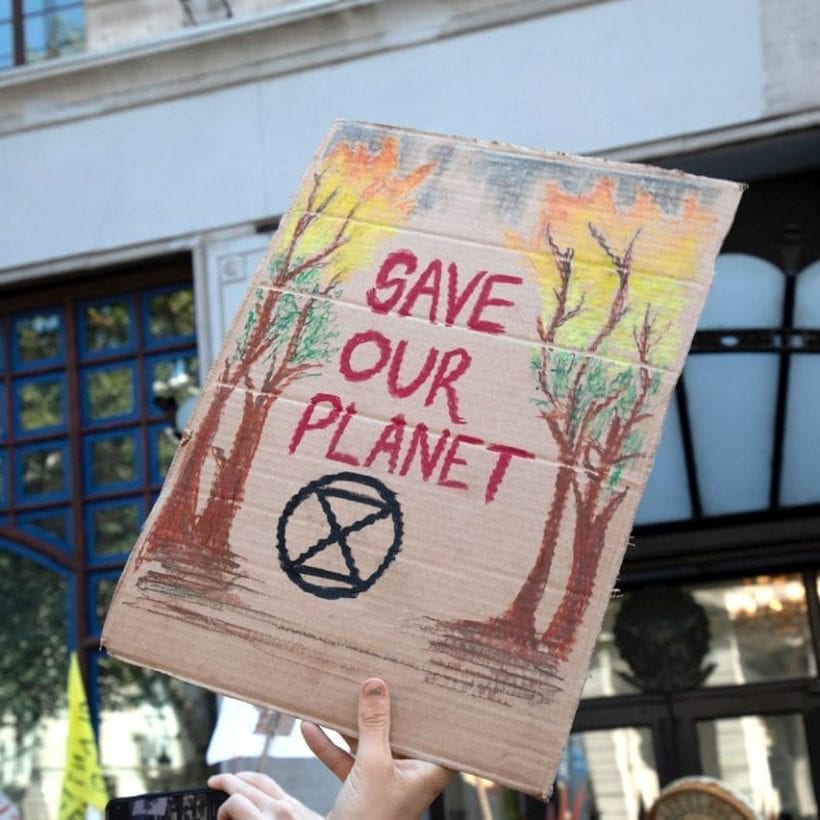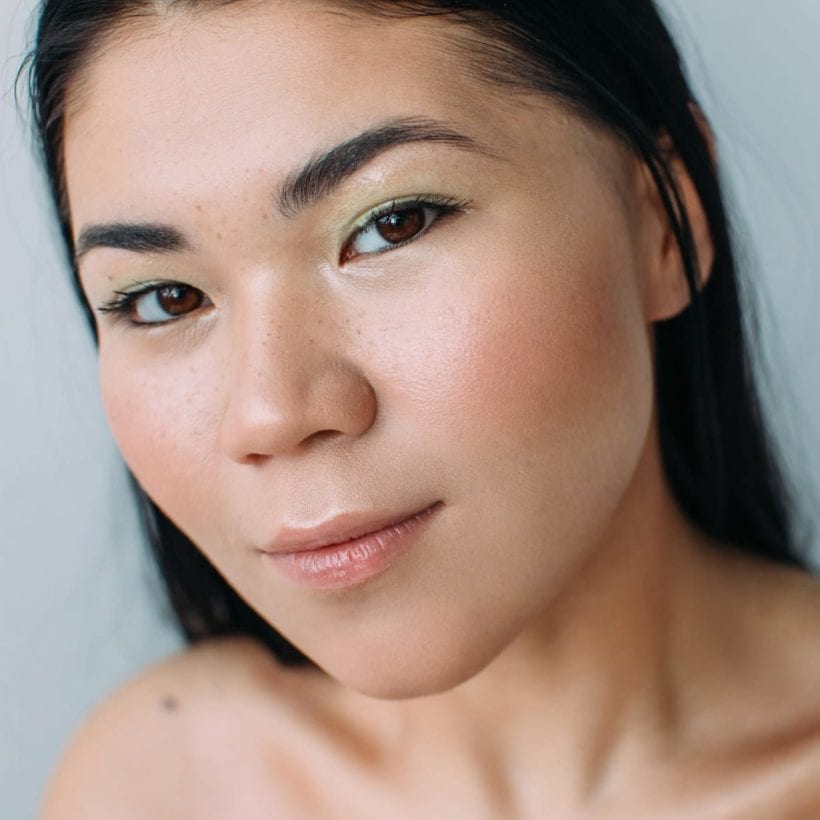As someone who lives on the West Coast (Portland, to be exact), I’ve gotten far too familiar with wildfire smoke. If you haven’t experienced it firsthand, it’s hard to describe, but the smoke permeates everything, turning the horizon into the haze. You can see the sun beneath the smoke, but it glows like an eerie red orb. And then there’s the smell, kind of like burnt hair, that sticks to your clothes if you have to go outside (if you’ve ever sat around a bonfire, you know how readily smoke clings to hair and clothes). The headaches come with breathing smoky air, the burning in the lungs, the ash that covers parked cars, and the danger to the animals. Not to be a total downer, but the smoke can also damage our skin.
Wildfires are getting more frequent and more severe because of climate change. Hotter temperatures mean less humidity and less rain, as IQAir, a website that tracks air quality, explains. When the ground is dry, fires become more intense, and a lack of rain means there’s nothing to put them out.
Even if you don’t live in an area prone to fires, weather patterns may still bring smoke to your city. For example, in July of 2021, New York City had some of the worst air quality in the world when smoke blew in from West Coast fires, thousands of miles away.
While sadly, it doesn’t look like wildfire season is going anywhere, there are steps you can take to make it more manageable on your skin. Here we talked to two dermatologists and two aestheticians about what wildfire smoke may be doing to skin and hair and how to fix it.
Wildfire Smoke & Skin
Most people are aware that environmental factors like air pollutants, including cigarette smoke and UV rays, affect the skin by causing premature aging or flare-ups of skin conditions like psoriasis and eczema. Wildfire smoke is no different than any other environmental pollutant. A 2021 study found that wildfire smoke can cause eczema even for people with no prior history.
And then there are the more benign but still annoying effects of smoke. Last year during the height of fire season in Portland, when the AQI index was off the charts, I tried my best to stay in the house, and still, I noticed my skin was somehow both drier and had more breakouts.
“Even short bursts of exposure to the smoke can damage the skin,” says Darya Rzaca, master esthetician, co-owners of Brooklyn-based spa, Atelier Beauté. Her business partner, also a master esthetician and co-owner of the spa, Aneta Zuraw, says, “Skin under the influence of pollution is irritated, pores become clogged, and the hydro-lipid balance provided by the natural protective layer of the epidermis is often disturbed due to environmental factors.”
Wildfire Smoke & Hair
“Particulate matter (dust, dirt, soot, smoke) can cause irritation and damage that results in hair dryness, breakage, and an irritated scalp,” says Dr. Craig Ziering, a board-certified dermatologist, hair transplantation surgeon, and restoration specialist.
You may notice that after prolonged exposure to smoke, your hair feels dirty and smells smoky, but also more dry or prone to breakage. The carcinogens in the smoke may also cause hair loss, especially if you’re genetically predisposed to thinning hair. “In most cases, hair loss is genetic; however research links thinning hair to environmental factors. Polluted air can exacerbate genetic hair loss,” Dr. Ziering says.
How Can I Prevent Skin & Hair Damage From Wildfire Smoke?
The good news is that you can take steps to limit the damage smoke has on skin and hair.
Use Antioxidant Ingredients
“Topical antioxidants can help to neutralize free radicals in smoke to help prevent damage,” NYC-based board-certified dermatologist Dr. Hadley King says. “Antioxidants popular in skincare include vitamin C, vitamin E, ferulic acid, niacinamide, resveratrol, astaxanthin, and many others.”
Antioxidants will bond with free radicals (like smoke and pollution), neutralizing them, so they aren’t as able to damage the skin. Look for products like C.E.O. Glow Oil that contains THD Ascorbate, an extremely stable and oil-soluble form of vitamin C that can help defend against smoke and pollution.
A moisturizer with ceramides, like ICE Ceramide Moisturizing Cream, can create a barrier on the skin that traps smoke particles so they can’t sink into the skin. Similarly, Dr. Ziering says using a hair serum every day can protect the surface and cuticle of the hair.
Avoid Going Out
Dr. King said that it’s best to avoid going outside as much as possible, something Dr. Ziering echoes when it comes to hair. It’s not always possible to stay inside all day, however. If you cannot avoid leaving the house, “cover your hair with the help of a scarf or hat to protect your hair from direct contact with air pollutants and dust.” You should also cover your body as much as possible by wearing long pants and sleeves and a face mask. Use an air purifier inside the home, as smoke can seep in through cracks or when the door opens.
Use SPF
When you can’t see the sun, or it looks hazy, it’s tempting to skip SPF, but this is a big no-no. Dr. King says that studies show that when air pollution is combined with UVA rays, the damage can be amplified; the skin’s reserve of antioxidants more quickly depletes when pollution or smoke meets UV light.
The best bet is to layer antioxidant serums or moisturizers under SPF; C.E.O. 15% Vitamin C Brightening Serum layered under Light Hearted Sunscreen is a good choice for smoky days.
Wash Hair, Skin, and Clothes Regularly
Wash your face and change your clothes as soon as you come outside; the sooner the pollution is off your skin and hair, the better. “Pollutants reside on the outside of the hair, so they can easily be rinsed off. Wash off your hair with mild and sulfate-free shampoos,” Dr. Ziering says. Clean Rinse Clarifying Scalp Serum helps to remove build-up and pollution from the scalp itself.
Even if you’ve washed your face several times during the day, don’t skip your nighttime cleansing. “Microcirculation of the skin cells increases during sleep, the penetration of the product is better. After a good night’s sleep, the skin is rested, regenerated, and, above all, properly oxygenated,” Rzaca says.
We only recommend products we have independently researched, tested, and loved. If you purchase a product found through our links, Sunday Edit may earn an affiliate commission.
